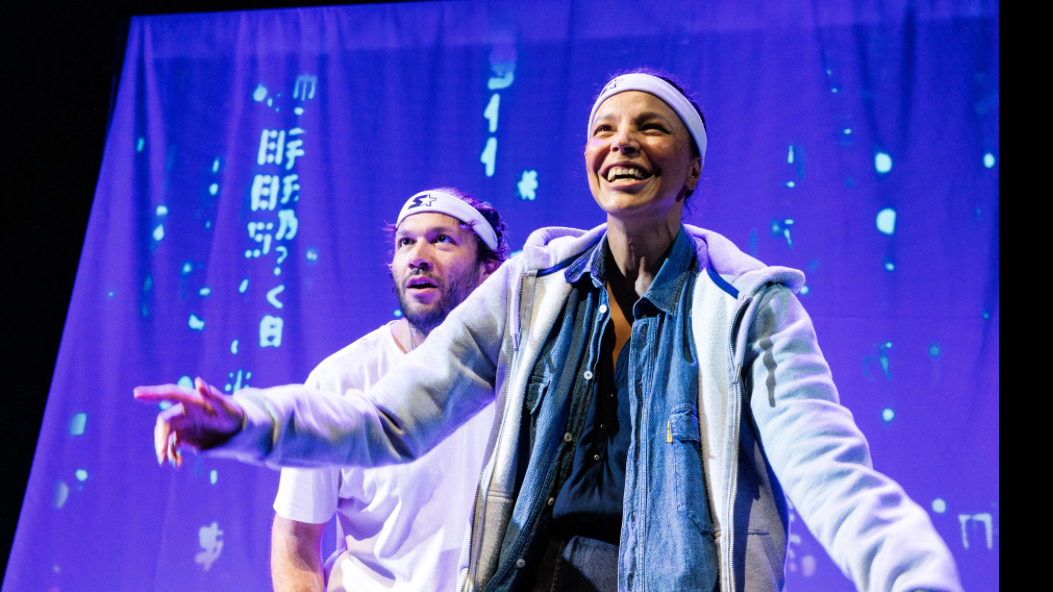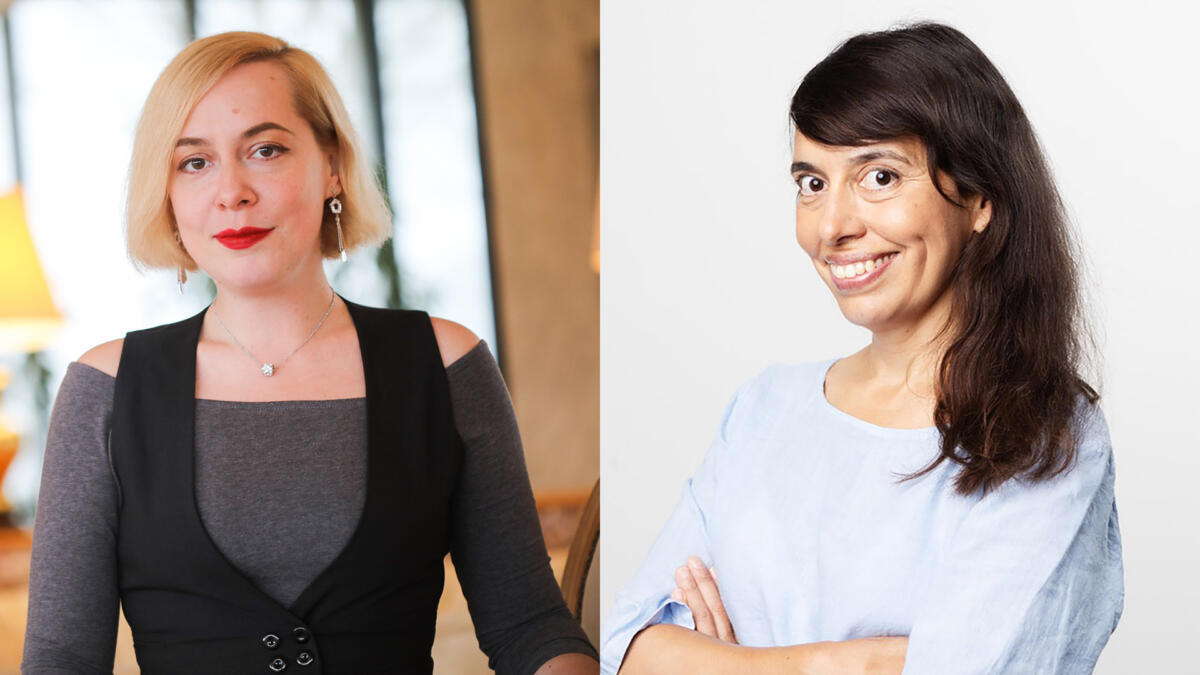Meeting the Other – on being a queer refugee and on facing anger with compassion
Vera Boitcova’s performance asks what the notion of home is for queer refugees and immigrants. In her piece Elina Izarra approaches anger with compassion.

In her performance Queer Enough the performance artist and a doctoral candidate Vera Boitcova explores the concept of being the “right kind of queer” within the European Union. The performance is based on the stories of queer immigrants and refugees and it’s part of Boitcova’s artistic research at the Performing Arts Research Centre Tutke of the Uniarts Helsinki’s Theatre Academy.
“My overall research delves into the notions of home, belonging, and otherness as experienced by queer immigrants and refugees, with a particular focus on identity politics in this performance,” Boitcova explains.
In her performance, Boitcova explores the experiences of queer immigrants and refugees as they are searching for home in a foreign country. The underlying themes of the performance are experiences of otherness and belonging. Boitcova says that her performance is primarily about the performativity of this experience.
“By performativity, I mean that many queer refugees and immigrants, myself included, have to constantly reconstruct their identities, lifestyles and personalities in order to fit into the narrative that is often expected of them.”
For her research, Boitcova has interviewed queer immigrants and refugees in several countries, particularly in the UK and France. Her dissertation moves from the larger to the smaller. The first part deals with queer refugee experiences in the EU, the next part in Finland and the third part is a more personal journey on Boitcova’s own experiences.
The topic resonates deeply with Boitcova who is originally from Saint Petersburg Russia. She says that she has been an immigrant most of her life, having lived in the United States, England, China and Finland.
“Of course, this reflects my personal experiences, as my life is deeply intertwined with these themes. I am unable to return to Russia due to my previous political activities and my identity as a queer individual, especially after having to leave Russia following the full-scale invasion of Ukraine in 2022.”
Queer communities closest to home
Boitcova says that she turned to queer communities in her search for belonging.
“Queer communities have always felt closest to home for me. I wanted to understand how others felt in similar circumstances and where they found their sense of belonging. This exploration grew out of my search for home, and through conversations I discovered that a key issue for many is not just the definition of home, but the struggle to fit into it.”
In interviewing other queer immigrants and queer refugees Boitcova noticed that the question of how to become the “right sort of person” deserving of acceptance in a new place weighs heavily on refugees, particularly how they can feel validated as individuals worthy of belonging.

Facing anger with compassion
“I don’t believe in responding to anger with anger. I believe in the power of listening and encounter,” says Elina Izarra, screenwriter, theatre director a doctoral candidate at the Performing Arts Research Centre Tutke of the Uniarts Helsinki’s Theatre Academy.
In her play Vihan jälkeen – esitys myötätunnon mahdollisuudesta, Izarra explores anger from different perspectives. The play approaches the motives of both those who have experienced hate and those who spread it through compassion.
“The play is a kind of kaleidoscope on the subject. I wanted to show as many different perspectives as possible and move away from binary thinking,” says Izarra.
Through Jaana and Lili, two sisters in the play, two different worlds are portrayed. Lili has experienced hatred and racism from an early age, while Jaana, who looks mainstream in appearance, has no similar experiences.
Izarra says she got the idea for the play while working on a project with photographer Katja Tähjä. They interviewed people who had taken DNA tests.
Through the interviews, Izarra realized that the more people had roots outside Finland, the more they had experienced being the target of hate. This was familiar to Izarra, who has roots on two continents – Finland and Latin America.
“I was pretty much alone with my unpleasant experiences. I never thought I would deal with it in my art. But the interviews made me feel that I could no longer look away.”
Izarra and Tähjä wanted to find out where this anger came from. They started interviewing people who had experienced or spread hate, as well as researchers. These interviews are in the background of Izarra’s play.
Research on casting
In the performance, Izarra has consciously sought to deconstruct the supposed role expectations that have become an established part of stage art and are further reinforced by media representations.
“As a director, I try to avoid typecasting. In my research, I ask how to direct plays without portraying black and brown people as victims.”
Izarra’s starting point in casting her play was that anyone could portray anyone in the play.
“I used conceptual casting, which means that the actor is chosen for the role against their perceived ethnic identity,” says Izarra.
The issue is also approached by social casting, where an actor is chosen for a particular role according to the image that the media and society feeds us of a person who looks a certain way or is a certain age.
Elina Izarra’s play Vihan jälkeen – esitys myötätunnon mahdollisuudesta will be performed at Turku City Theatre in January–February 2025.
Vera Boitcova’s performance Queer Enough can be seen at Uniarts Helsinki’s Theatre Academy, Kookos building, on Tuesday 21 January at 18:00 and Wednesday 22 January at 19:00.
Text: Susanna Bono
Photos: Satu Kemppainen, Eeva Anundi